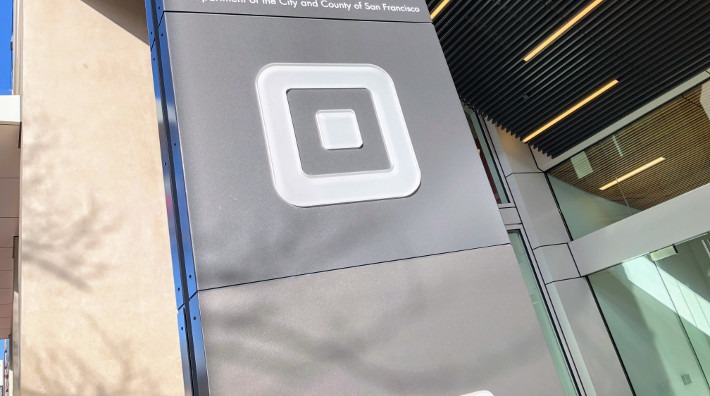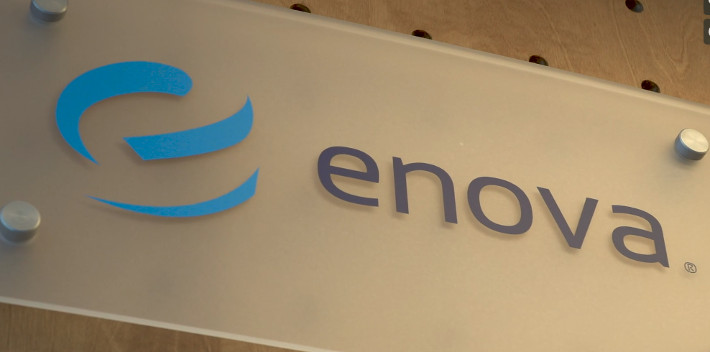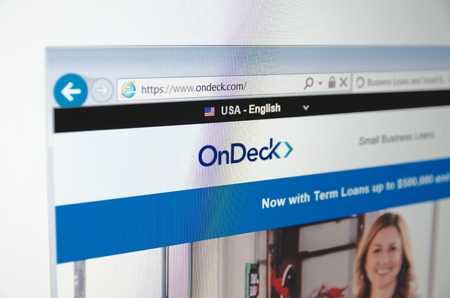Industry News
Square Capital Resumes Business Lending
August 4, 2020 Square Capital, the small business lending division of Square, resumed offers for its “core flex loans” in late July, the company announced. However, there will be “stricter eligibility criteria.”
Square Capital, the small business lending division of Square, resumed offers for its “core flex loans” in late July, the company announced. However, there will be “stricter eligibility criteria.”
Square Capital made no core flex loans in Q2, having paused in mid-March on news of the impending crisis.
The company pivoted to PPP lending in Q2 in the interim and through this program managed to fund over 80,000 small businesses for a grand total of $873 million. The average came out to approximately $11,000 per loan.
Square says that in PPP they “expanded awareness of Square Capital as 60% of [their] PPP borrowers had never before received a loan through Square.”
Loss rates during Q2 were about 2.5x prev-COVID levels, a range they accurately predicted might happen at the end of Q1.
ZenBusiness Acquires Joust
August 3, 2020ZenBusiness, the Austin-based business formation services company, recently announced that it reached an agreement to acquire Joust for an undisclosed amount. Offering financing options to freelancers and entrepreneurs, Joust services, like PayArmour, will continue under its new ownership, rebranded as ZenBusiness Money when it relaunches in October.
“The acquisition of Joust and upcoming launch of ZenBusiness Money furthers our mission to provide the nation’s 57 million micro businesses with exceptional and friendly tools that simplify the process of forming and running their business,” ZenBusiness CEO and Co-founder Ross Buhrdorf noted in a statement. “We are excited to welcome the world-class fintech experience the entire Joust team brings to the ZenBusiness family as we continue to grow the features of our platform.”
With there still being an urge to work from home, all of ZenBusiness’s newly acquired employees will work remotely. Given the oddness of being bought in the middle of a global pandemic, Buhrdorf explained in a call how while covid-19’s economic impacts have led to an increased interest in their product, this uptick is not something new, but rather an inevitability.
“There’s no denying our businesses have accelerated as a result of covid-19. I don’t want to get carried away there because this was a growing trend before this. Lots of companies were turning employees into contractors, and so this was a growing trend. I think that the pandemic accelerated that, either out of necessity or it was, ‘hey, the world’s a changed place, I need to start up a side gig.’”
Joust CEO Lamine Zarrad followed up on this point by mentioning that this pattern is linked to why ZenBusiness is a B Corp, with the hope being that they will be able to provide support to Americans as they encounter new financial challenges.
“We are now a public benefit corporation, and Joust’s missions has always been oriented towards social good. And we’re excited to help these individuals who are now becoming entrepreneurs and wading into these waters that are completely uncharted.”
Rapid Finance Resumes Funding
July 29, 2020Rapid Finance is funding again, according to posts made by the company on social media.
“Now that most states are in the process of beginning to function normally, many small businesses are back in operation and we’re excited to announce that we have resumed accepting NEW financing applications!”
Shopify Originates $153M in MCAs and Loans in Q2
July 29, 2020 Shopify had a monster 2nd quarter. The e-commerce giant generated $36M in profit on $714.3M in revenue. As part of that the company originated $153 million worth of loans and merchant cash advances, only slightly down from the $162.4M in Q1. Still that figure was up by 65% year-over-year (and was more than 2x the volume originated by OnDeck).
Shopify had a monster 2nd quarter. The e-commerce giant generated $36M in profit on $714.3M in revenue. As part of that the company originated $153 million worth of loans and merchant cash advances, only slightly down from the $162.4M in Q1. Still that figure was up by 65% year-over-year (and was more than 2x the volume originated by OnDeck).
The company has offered capital to its US merchants since 2016 and recently begun doing the same with its UK and Canadian merchants starting this past March and April respectively, the company revealed.
Shopify CFO Amy Shapero said that company had maintained loss ratios “in line with historical periods,” despite COVID. “Access to capital is even tougher in times like these, which makes it even more important to continue lowering this barrier by making it quick and easy so merchants can focus on growing their business,” Shapero stated.
Enova & OnDeck: Behind The Biggest Deal of 2020
July 29, 2020 Enova CEO David Fisher kicked off his company’s 2nd quarter earnings call on Tuesday and one could tell from the pitch in his voice that he was excited. And why shouldn’t he be? Despite the catastrophe that gripped the nation over the months of April, May and June, Enova still manages to report a consolidated net PROFIT of $48 million.
Enova CEO David Fisher kicked off his company’s 2nd quarter earnings call on Tuesday and one could tell from the pitch in his voice that he was excited. And why shouldn’t he be? Despite the catastrophe that gripped the nation over the months of April, May and June, Enova still manages to report a consolidated net PROFIT of $48 million.
But that’s not even it. After a long introduction about a major acquisition, a rather familiar voice is asked to deliver some prepared remarks.
“Thanks David, I am equally excited…”
It’s Noah Breslow, the CEO of OnDeck. Less than an hour earlier it was revealed that Enova had bought 100% of OnDeck’s outstanding shares for $90 million in a deal paid for almost entirely with stock. And now suddenly he’s here on this call talking about how great it is that the companies are combining forces.
“Following an extensive review of our strategic options, we believe this is the right path forward for our customers, employees, and shareholders,” Breslow says.
That OnDeck has been acquired is no surprise. The devastating impact of COVID in Q1 reveals weaknesses in the company’s business model and the share price drops by 80% from the period of February to July. This all while two of their competitors in the small business lending space, Square and PayPal, experience enormous gains of more than 40%.
 In May, Forbes reported grim news, that OnDeck is being shopped around in “what amounts to a fire sale.”
In May, Forbes reported grim news, that OnDeck is being shopped around in “what amounts to a fire sale.”
The rumor creates further despair in an industry that is preoccupied with survival. If this can happen to OnDeck, then…?
The truth is, OnDeck’s momentum had stalled long before COVID. The company walked away from a sale to Wonga in 2012 that had valued them at $250 million and they went on to have a successful IPO in 2014 at a value of $1.32 billion on the selling point that they were a tech company.
But by mid-February of this year, the company’s market cap is down to less than $250 million, turning the clock backwards by about eight years. After losing the partnership with Chase in 2019, OnDeck seemed to have lost its swagger and direction. They planned to pursue a bank charter and do a stock buyback. Then the news pretty much stops.
COVID happens and it hits them hard. The company stopped lending entirely, although they still recorded originations of $66 million in Q2.
As a standalone entity, OnDeck’s upside had greatly diminished. Getting back to where it was pre-COVID may not have been an entirely enticing prospect for investors. Its market cap recently plummeted to less than $50 million and so by the time the Enova price of $90 million is announced, it sounds almost generous. (Knight Capital sold for $27.8M in November).
Enova says that the acquisition increases their concentration in small business lending from 15% to 60%. That puts consumer lending, their historical core business, now in the minority. This is not by accident. On the earnings call, Enova executives say that they believe that “there will be strong demand for capital from small businesses as the economy begins to open back up.” They even believe the opportunity is better than the consumer lending market right now, particularly from a regulatory perspective, they say. Therefore it makes sense to “double down or triple down” on the small business side, they contend.
Enova’s small business lending business was largely spared by COVID. Unlike OnDeck’s brutal Q1, Enova had reported something “very much manageable” thanks to not having “large exposures to entertainment, hospitality and restaurants.”
“Our portfolio has been extremely stable,” Enova says on the call. With the acquisition of OnDeck, the company appears to be gearing up for the opportunity they believe awaits in small business lending right around the corner.
Michael Scalise Passes Away
July 27, 2020Michael Scalise, an early entrant in the MCA industry, passed away on July 22nd. He was 40 years old. A gofundme has been set up to help his children pay for the funeral expenses.
New York State Legislature Passes Law That Requires APR Disclosure On Small Business Finance Contracts (Even If They’re Not Loans)
July 24, 2020 Factoring companies and merchant cash advance providers may be in for a rude awakening in New York. The legislature there, in a matter of days, has rammed through a new law that requires APRs and other uniform disclosures be presented on commercial finance contracts… even if the agreements are not loans and even if one cannot be mathematically ascertained.
Factoring companies and merchant cash advance providers may be in for a rude awakening in New York. The legislature there, in a matter of days, has rammed through a new law that requires APRs and other uniform disclosures be presented on commercial finance contracts… even if the agreements are not loans and even if one cannot be mathematically ascertained.
The law also makes New York’s Department of Financial Services (DFS) the overseer and regulatory authority of all such finance agreements. DFS can impose penalties for violations of the law, the language says.
The bill was passed through so quickly that unusual jargon remained in the final version, increasing the likelihood that there will be confusion during the roll-out. One such issue raised is the requirement that a capital provider disclose whether or not there is any “double dipping” going on in the transaction. The term led to a rather interesting debate on the Senate Floor where Senator George Borrello expounded that double dipping might be well understood at a party where potato chips are available but that it did not formally exist in finance and made little sense to have it written into law.
Senator Kevin Thomas, the senate sponsor of the bill, admitted that there was opposition to the “technicalities” of it by some industry groups like the Small Business Finance Association and that PayPal was one such particular company that had opposed it on that basis. Senator Borrello raised the concern that a similar law had already been passed in California and that even with all of their best minds, the state regulatory authorities had been unable to come up with a mutually agreed upon way to calculate APR for products in which there is no absolute time-frame. Thomas, acknowledging that, hoped that DFS would be able to come up with their own math.
APR as defined under Federal “Regulation Z”, which the New York law points to for its definition, does not permit any room for imprecision. The issue calls to mind a consent order that an online consumer lender (LendUp) entered into with the Consumer Financial Protection Bureau in 2016 after the agency accused the lender of understating its APR by only 1/10th of 1%. The penalty to LendUp was $1.8 million.
Providers of small business loans, MCAs, factoring and other types of commercial financing in New York would probably be well advised to consult an attorney for a legal analysis and plan of action for compliance with this law. The governor still needs to sign the bill and New York’s DFS still has to prepare for its new oversight role.
Passage of the law was celebrated by Funding Circle on social media and retweeted by Assemblyman Ken Zebrowski who sponsored the bill. The Responsible Business Lending Coalition simultaneously published a statement.
Bitty Advance Has Been Acquired By Industry Veteran Craig Hecker
July 23, 2020 There’s new management over at Bitty Advance. The Fort Lauderdale-based funding company has been acquired by long-time industry veteran Craig Hecker. Hecker, who years ago founded, grew, and sold Rapid Capital Funding had originally acquired a stake in Bitty earlier this year, but in the following months purchased the remainder of the business from founders Eddie Siegel and Lenny Duvdivani.
There’s new management over at Bitty Advance. The Fort Lauderdale-based funding company has been acquired by long-time industry veteran Craig Hecker. Hecker, who years ago founded, grew, and sold Rapid Capital Funding had originally acquired a stake in Bitty earlier this year, but in the following months purchased the remainder of the business from founders Eddie Siegel and Lenny Duvdivani.
Hecker told deBanked that under his management Bitty has committed capital that will allow the business to fund up to $10 million per month.
“I’m very excited to take my industry experience and knowledge and apply it to this segment of the MCA space,” he says.
As part of the takeover, Hecker says that he has “re-assembled his dream team of technologists and ops” that have been part of his inner-circle for nearly a decade and “were critical in building out the platform” that had made Rapid Capital Funding successful.
Bitty has historically focused on micro-advances and the company plans to really scale up its efforts in the $2,500 – $12,500 small merchant market segment with the aid of automated technology. In addition to this, Bitty has launched a new sales partner portal for ISOs. “That way [ISOs] will always know what’s going on with merchant applications,” hecker said.





























